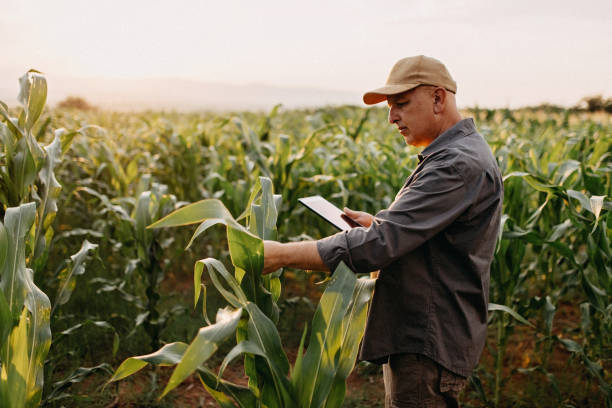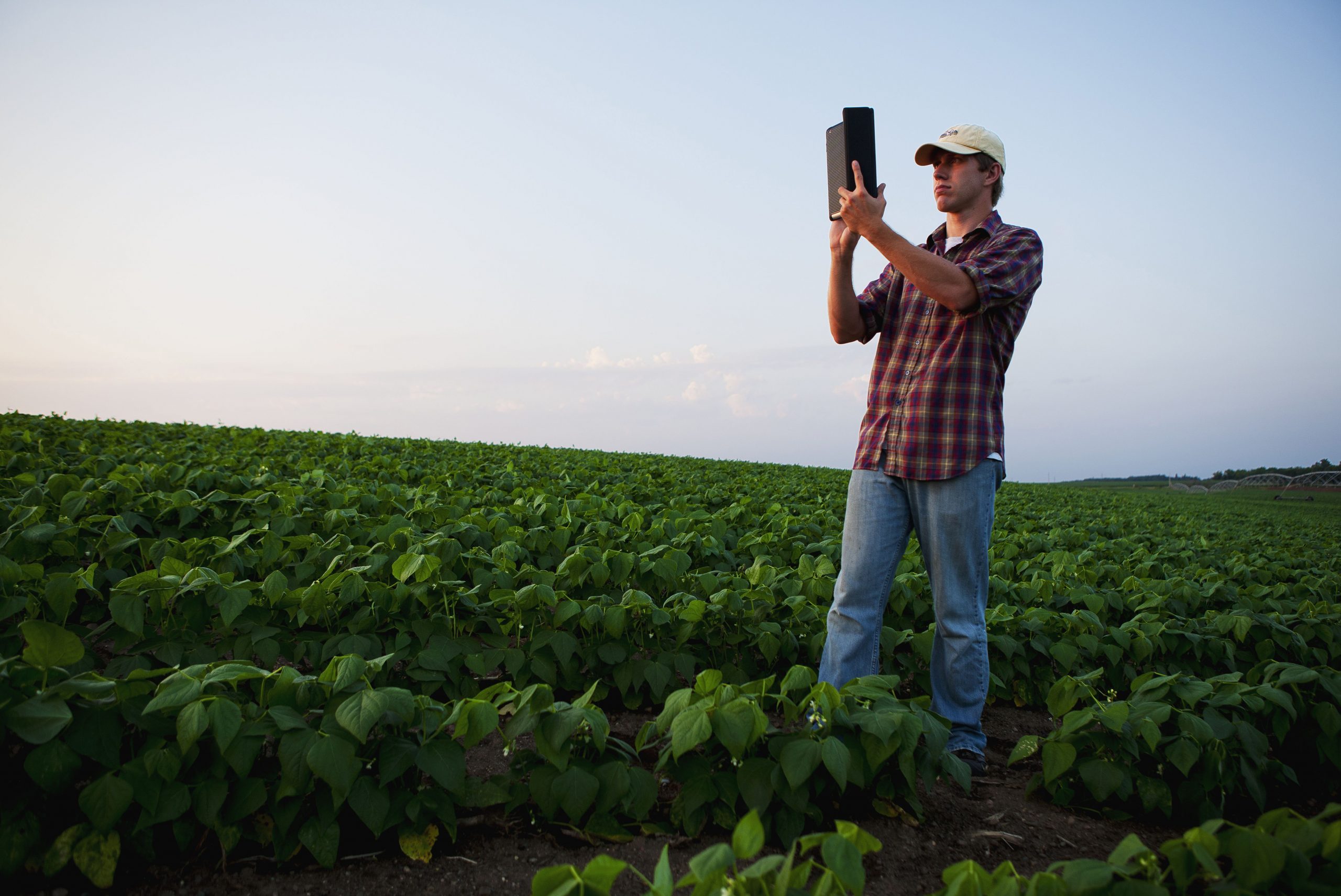5 Ways Traceability Systems will benefit your Agribusiness
Farm traceability: The world is constantly transforming and improving the food systems in order to feed an increasingly populous world. Nonetheless, there are several barriers to the ability of the agricultural sector to cope with the demand of customers to know where their food has procured from and related details. This calls for tracking and documentation of all parameters relating to the crop, origin, growth, processing, storage, logistics etc. Traceability software is that one solution that will help you satisfy the information requirement of these customers.
A large part of the problem relates to an absence of transparency and technological innovation within supply chains. In order to combat these challenges, the agri-food industry has developed traceability systems, an innovative approach aimed at addressing security and quality problems in the food supply chain.
What Is farm traceability?
Traceability – a mechanism for tracking food products from production to consumption, providing a crucial tool to help operationalize rules and regulations through increasing transparency across food supply chains.
“Trace One” conducted a recent survey which revealed that 91% of consumers believe it is crucial to be informed in regards to the origin of their food, however only 12% of consumers are certain that food is safe.
Traceability has substantial benefits for all of the parties involved throughout the production process. Specifically for producers, the benefits may include improved operational efficiency, improved risk management, increased global market access, and even the ability to contribute to the achievement of sustainability goals.

Trackable Products Enhances Consumer Confidence
Traceability based on blockchain technology is gaining traction as a valuable tool for taking swift, accurate measures when it comes to food recalls.
This can greatly assist in minimizing potential food safety hazards, which has a positive impact on consumer confidence.
Likewise, the ability to trace agriculture can serve as a fundamental element for improving supply chain processes. With this technology, you are able to follow the product’s life cycle starting from field to plate of the consumer through QR codes, thereby enhancing the legitimacy of agricultural products.
Everyone involved in the agricultural process can benefit from traceability. Continue reading to discover how traceability can benefit your agribusiness – as we are going to talk about 5 different ways in which traceability can benefit your agribusiness.
5 Farm Traceability Benefits To Agribusinesses
#1 – Immediate farm traceability On food recalls
Whenever a food product is found to have a risk or irregularity, it is imperative that its origins are traced to ensure that it is not released for consumer consumption and is updated on to the farm diary.
A traceable system in agriculture can ensure that products with potential contamination or damage have a more straightforward traceability system in the form of serial and batch numbers.
Moreover, an optimal traceability system enables tracking all the way back to the source and pinpointing the root cause of the problem.
In the event of an accidental food recall, agriculture traceability can be used to gain a better understanding of the supply chain, assuring the success of the recall as well as the preparation for the situation.
Furthermore, a streamlined process was achieved with the identification of the particular batch of products that were affected.
The effectiveness of this helps enhance the consumers’ trust by ensuring they have access to products of high quality and safety. In addition, using a traceability system, you can discover why the damage happened in the first place and reduce the risk of repeat damage down the road.
#2 – Quality control and satisfaction concerning quality norms
As stated earlier, one of the major benefits associated with farm traceability is compliance to standards of quality and safety. Yet, food safety is largely dependent on 2 key factors that are as follows:
- For good quality yields, it is essential to have clear definitions of what production involves.
- In order to guarantee timely delivery of fresh agricultural products to warehouses and stores, a proper forecast system for harvesting that helps plan/deploy procurement personnel, quality testing capabilities, logistics, warehousing, etc., is necessary.
In the absence of attention to these two factors, there is a likelihood of degradation in the quality of the goods produced with the use of agriculture, and the diseases caused by the consumption of these goods might become even more severe.
An agricultural traceability program can be considered a viable and effective remedy for these problems. A traceability system’s transparency provides stakeholders with the necessary information in order to maintain a hygienic working environment by identifying and preventing the practice of unhygienic acts.
It also enables the identification of efficiency gaps that exist between any two processes at any stage of the supply chain, allowing agricultural businesses to intervene in real-time in order to prevent mishaps.
This way, the traceability of agricultural products ensures that the agricultural products produced are of a high standard of quality and conform to the regulations.
As a result, creating a farm traceability system that is both efficient and effective will help mitigate risk by helping agricultural businesses develop mechanisms for food safety and quality assurance.
Systems like these provide a high level of transparency enabling all participants in the food system to detect risks quickly and respond in a shorter amount of time when an emergency occurs, for instance when a hazard or epidemic strikes.
#3 – Simplified & Traceable Supply Chain Management
One of the most obvious benefits of implementing a traceability system for agriculture and digitizing supply chain operations is that they will increase the efficiency of the supply chain.
Regardless of the industry or sector a company operates in, in order to perform at its best, business owners must continually optimize their methods in order to achieve better results.
Agriculture has the potential to contribute to traceability by assisting agribusinesses in accomplishing this.
It was found that taking advantage of digital technology for the tracking and analysis of agricultural supply chains would be beneficial to better understand the processes and streamline them to achieve better results.
According to studies, it has been calculated that farmers who adopt the use of digital technologies gain approximately $10 in return for every dollar spent.
It is also possible to certify products with digital traceability technologies, which guarantee that only the best and most sustainable products are available to consumers, and their quality and authenticity can be verified.
Using traceability systems, supply chain operators are able to provide greater visibility and better management of their supply chains for all parties involved. By doing this, they are able to identify opportunities for innovation in terms of food waste, consistency, as well as ways that can help make processes more efficient and more affordable simultaneously.
#4 – More Confidence And Trust Among Customers
The modern consumer is very aware and thoughtful of the food he or she consumes.
Firstly, they seek to ensure that the agricultural products they intend to purchase comply with the relevant safety and quality standards.
Secondly, consumers are also keen to gain insights into the environmental damage associated with the production and distribution of such agricultural products.
A growing number of consumer initiatives under the banner “Eat local ” demonstrate consumers’ desire to have more knowledge regarding the way the food they consume is produced and where the food has been cultivated. In order to live up to this requirement, farmers are required to keep meticulous records of the farm-to-form products they deliver to retailers, a process commonly known as “farm to fork traceability”.
The incorporation of traceability into agriculture serves an important purpose in connecting customers to these vital details in their food supply chain. Through the use of QR codes and barcodes, it is now possible for customers to track agricultural products on their journey from seed to shelf and purchase the finished product from their nearby stores.
This includes everything such as the following:
- Detailed information about the farm
- Detailed information about the farmer
- The product’s quality, among other things.
The QR code provides you with all of the information that you need to know. Amazing, isn’t it? In turn, consumers are more likely to have a greater level of trust and confidence when it comes to your agricultural products.
#5 – More Competitive Prices For Agricultural Products
For agriproducts to command a good price, producers have traditionally struggled with convincing customers of the superiority of their products.
That’s where traceability comes in handy.
A traceability system in agriculture makes it easier for growers to be able to verify the authenticity as well as quality throughout the production process of their agricultural products. In this way, they can demonstrate to consumers their compliance with the quality, integrity, and regulatory requirements set forth by accreditation organizations.
In today’s market, there is more and more enthusiasm from consumers about paying more for the products they use, if they receive comprehensive details about where the product came from. The entire lifecycle of the product is involved, beginning with the seed, and continuing with the production, harvesting, and distribution of the product.
The concept of agricultural traceability offers producers the opportunity for negotiations in order to secure competitive market prices for high-quality agricultural products.
It is evident that as consumers begin to become more mindful of product safety and quality concerns, producers, agribusinesses, and stakeholders throughout the supply chain have a responsibility to meet customers’ needs and expectations.
This is where a crop-to-store traceability system significantly contributes to quality assurance and food safety by ensuring that everything in the supply chain is digitally controlled and operated.


joaquin
Very well written post. I have read the content and it is so helpful.Thanks for sharing.